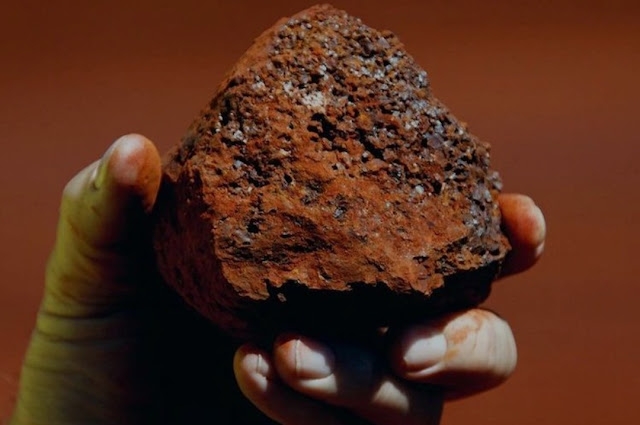Australia Provides Compensation to Aboriginal People for Historical Mining Damage
 |
| "The Western Australian government has proposed changes to the law that will improve regulations for mining operations on Aboriginal cultural sites (DAVID GRAY/REUTERS via ABC INDONESIA)." |
Introduction:
Australia's Western state has agreed to provide compensation to the Aboriginal community, including revoking mining leases on traditional lands, setting a precedent that allows greater indigenous representation in the future. This move comes as the country strengthens its laws to protect indigenous cultural heritage, following the destruction of ancient rock shelters by Rio Tinto's iron ore mining operations three years ago, which had served as a home for humans 46,000 years ago.
1. Upholding Cultural Heritage Protection:
The Western Australian government, as reported by Reuters, has reached a historic settlement agreement with the Tjiwarl people in the northern Goldfields region. This agreement includes three compensation claims of native title, as well as an arrangement for future land usage. In this settlement, the state will pay the Tjiwarl Aboriginal Corporation AUD 25.5 million for actions such as granting access roads and revoking leases of parties that have violated or destroyed the group's legal rights to their traditional lands. The new agreement ensures a stronger voice for the Tjiwarl community in future mining developments, particularly concerning water management issues, mining activities, and oil and gas leases. Furthermore, the agreement eliminates the need for future compensation claims. Certain land areas will be returned to the Tjiwarl people, allowing them to expand their conservation areas. Bellevue Gold and lithium developer Liontown Resources Ltd, operating on Tjiwarl land, have been involved in compensation litigation.
BHP Group's Land Usage Agreement
While BHP Group declined to comment, it previously reached a land usage agreement in 2018 for its nickel operations, which is not part of the current settlement. The Mount Keith and Leinster nickel operations are located on Tjiwarl land.
2. Empowering Indigenous Communities:
The compensation provided by the Western Australian government marks an important step towards acknowledging the historical injustices faced by Aboriginal people and their right to preserve their cultural heritage. By revoking mining leases and granting financial compensation, the government recognizes the significance of Aboriginal land rights and seeks to rectify past wrongs. This landmark agreement also paves the way for increased indigenous involvement in decision-making processes regarding future mining projects. The Tjiwarl community, through their Aboriginal Corporation, will have a stronger say in the management of water resources and mining activities on their traditional lands.
A Precedent for Aboriginal Rights
The settlement between the Western Australian government and the Tjiwarl people sets a crucial precedent for other Aboriginal communities across the country. It demonstrates the importance of recognizing and respecting indigenous cultural heritage, as well as providing a platform for indigenous voices to shape future development plans. This landmark agreement highlights the need for continued efforts to protect and preserve the rich cultural history of Australia's First Nations peoples.
Conclusion:
Australia's decision to provide compensation to the Tjiwarl people for the damage caused by historical mining operations signifies a significant step towards recognizing and rectifying past injustices. By strengthening laws to protect indigenous cultural heritage and granting greater representation to Aboriginal communities, the country aims to ensure a more inclusive and equitable future. This landmark settlement sets a precedent for upholding Aboriginal rights and paves the way for increased indigenous participation in decision-making processes. It serves as a reminder of the importance of preserving Australia's rich cultural history for generations to come.